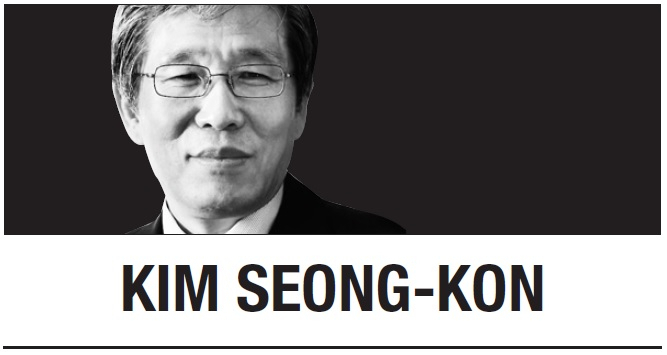

Since 1965, when a large number of Koreans began immigrating to the US, Los Angeles has been the undisputed center for the Korean diaspora community in America. Los Angeles means “city of angels” in Spanish and Korean immigrants have often looked to the city as a place of settling down in America. Koreans who went there overcame hardships and ordeals on foreign soil to pursue their dreams, just like pioneers in the Wild West.
Given their motivation and drive, it is small wonder that the Korean immigrants who settled down in LA decades ago have now become successful and affluent, forming a highly influential, conspicuous community. LA’s Koreatown is a flourishing gem on Wilshire Boulevard and signifies the outstanding achievements of Korean Americans as model immigrants in the US.
Therefore, LA has always been a dreamland for Korean immigrants who are pursuing the American Dream. Sometimes, the dream may recede, and other times, the city can be inhumane due to its desolate urban landscape flooded with cars. The narration in the beginning of the movie “Crash” movingly depicts the characteristics of LA: “In any real city, you walk, you brush past people, and people bump into you. In LA, nobody touches you. We are always behind this metal and glass. I think we miss that touch so much, that we crash into each other just so we can feel something.”
Still, however, few Korean Americans seem to want to leave LA. Instead, they have admirably maintained the warmth of human touch among themselves and thus thrived even in the inhumane city full of cars. Besides, if you have found in a city what you have been looking for, it is not easy to leave the city. Indeed, LA is such a special city for Korean Americans and will remain so for the years to come.
Recently, I flew to LA for two lectures at an event commemorating the 25th anniversary of the Korean Essayist Association of America. It was a seven-hour flight from Boston to LA, but it actually took me 12 hours altogether from my hometown airport in Hanover, New Hampshire, to my hotel in LA. America is such a big country that it is completely normal to endure such a long flight from the East Coast to the West Coast.
However, my trip was worth it in every sense. Among other things, in LA I found the “Korea” I used to know. LA’s Koreatown had virtually everything I could find in Korea, such as Korean supermarkets, restaurants, pharmacies, gas stations, hotels, beauty salons, barbershops and a myriad of others. In addition, I could see and feel the familiar Korean culture and atmosphere everywhere.
Moreover, in Koreatown, I did not have to speak English at all because people I encountered were either Koreans or Korean Americans. There were moments when I almost forgot I was not in Korea! While strolling Koreatown, it occurred to me that Korean Americans in LA might not need to travel all the way to Korea because they already were in Korea.
Furthermore, I have witnessed and experienced the internationally acclaimed Korean hospitality during my sojourn in LA. For example, Ms. Hyun-sook Lee Senteno, president of the Korean Essayist Association of America, and her husband, Joe Senteno, graciously drove for more than one hour to the LA airport to greet me despite the notorious LA traffic.
Korean hospitality continued thereafter. When I arrived at the Garden Suite Hotel, the Korean American manager gave me a pleasant surprise by generously upgrading my regular room to a suite room. The standing-room-only lecture hall was filled with Korean Americans who love literature. Some of them touched my heart by deciding to stay until the end of my talk, even though they were supposed to leave in the middle of my lecture for another important event. In addition, a number of Korean American dignitaries drove several hours to the lecture site to listen to someone from Korea.
In LA, I met Korean Americans who remain closely connected by a network of family ties, manners, religions and the artistic, literary traditions of their homeland. In my eyes, they were leading diasporic lives admirably well. Meeting and mingling with them in LA, I felt like I was back in Korea.
Therefore, my trip to LA nicely substituted for my long-overdue return trip to Seoul. Indeed, I came to understand why Korean permanent residents and Korean Americans in LA do not intend to leave the City of Angels, despite ever-menacing urban crimes, high living costs and air pollution.
Thus, when I was about to leave Los Angeles where Korean immigrants were tightly connected by Korean culture, while successfully assimilating into American society, I was besieged by the spectacular accomplishments of Korean Americans who built “Little Korea” in LA. In this epiphany, I felt full of pride for them.
Leaving for the East Coast, I could only feel a strong nostalgia for the City of Angels.
Kim Seong-kon
Kim Seong-kon is a professor emeritus of English at Seoul National University and a visiting scholar at Dartmouth College. The views expressed here are his own. -- Ed.